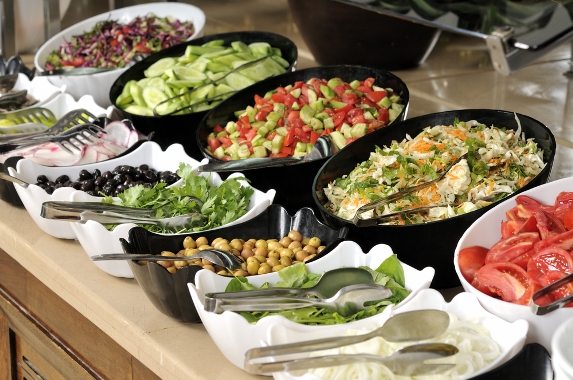The thought of getting caught in a food contamination outbreak can keep a restaurant owner up at night. It’s one of the trickiest and most unpredictable risks you face. The problem can start at your business with a power outage or equipment failure that leads to spoiled food, or with one of your kitchen workers coming to work sick and infecting your food supply. Or, it can start thousands of miles away when someone along the global food chain fails to take adequate safety measures.
It can happen anywhere, anytime – and the fallout can be devastating.
Just ask the folks at Chipotle Mexican Grill. Health officials closed 43 of the company’s restaurants in Seattle this past fall for repeated food safety violations, and that’s on top of a norovirus outbreak at the restaurant’s location near Boston College that sickened 141 people earlier in the year, and a widespread E. coli outbreak that sickened 52 people in nine states.
The stakes have never been higher for those in the food industry. Food contamination outbreaks and recalls are on the rise, the federal government has much greater inspection and enforcement authority now, judges and juries are cracking down, and advances in technology have made it easier to pinpoint the source of contamination. That means everyone in the food chain has greater exposure to the financial, legal, and reputational risks associated with an outbreak – and that includes your restaurant.
If it happens to you, will your restaurant business survive?
If your risk management strategy doesn’t include a solid plan to deal with this evolving risk, you’re rolling the dice. Follow these tips to reduce your risks, keep your reputation intact, and control your costs if it happens to you:
- Educate your staff about proper food storage methods and how to recognize spoiled food, and the dangers of unclean surfaces, improperly washed fruits and vegetables, and improperly cooked food.
- Designate someone to respond to customer complaints, media questions, and health department inquiries.• Demonstrate your genuine concern for the welfare of your customers and assure them you are thoroughly investigating the matter.
- Investigate the incident yourself, even if the health department is conducting a formal investigation. Get written statements from affected customers and food-handling staff on duty at the time of the incident.
- Communicate immediately with your insurance company, attorney, and any affected vendors/suppliers about the problem so you can get the ball rolling on handling the situation.
Last but not least, you need robust insurance protection for today’s complex and evolving food contamination threats. Your General Liability policy alone may not be enough to protect you. You may also want to consider coverage for food contamination and spoilage, equipment breakdown, and business interruption. Operating without these added coverages could be a recipe for the kind of devastating financial loss that could shut you down for good.
The threats are evolving, and your insurance coverage needs to evolve with them.
With the growing risks to our food supply, aggressive insurance coverage is a matter of survival in the restaurant business. Contact your independent agent about safeguarding your business – and your profits – against these evolving risks and ask about FICOH’s specialized restaurant insurance program.

